Civil Liberties, Civil Rights, Human Rights, U.S. Militarism, Violations of U.S. and International Law, War Resister
Podcast: Play in new window | Download
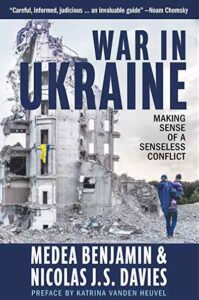
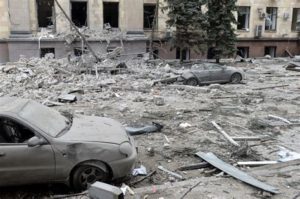
War in Ukraine: Making Sense of a Senseless Conflict
Since February 24, 2022, the day that Russia illegally invaded Ukraine, hundreds of thousands of Ukrainians and Russians have been killed or otherwise become casualties. Eight million Ukrainians have been forced to flee their homes, and hundreds of thousands of Russians have fled conscription. Millions of people in Ukraine have no heat, electricity or water and temperatures are below freezing. The war has devastated 35% of Ukraine’s economy.
Western sanctions on Russia have led to skyrocketing inflation in Europe, and a dangerous squeeze on energy supplies is crippling manufacturing. The war has also devastated infrastructure, reducing electrical grids, railways, apartment buildings and oil depots to rubble. It has filled the air with pollutants and toxic waste that is contaminating rivers and groundwater.
The war is also exacerbating the climate crisis. The fossil fuel industry is profiting from the sanctions which provide it with an excuse to increase dirty energy exploration and production.
The Western media portrays the war as a conflict between the evil empire Russia and the innocent Ukraine. Lost in the heartbreaking images, however, is a nuanced understanding of the context for the war, what caused it, and how it can be ended. The role of the United States in the historical backdrop to the war and the current U.S. resistance to a peaceful settlement are absent from the coverage in the corporate and even much of the alternative media.
Guest – CodePink co-founder Medea Benjamin, who has co-authored with Nicolas Davies the new book, “War in Ukraine: Making Sense of a Senseless Conflict.” Medea is one of the leading activists of our time. Wherever people are hurting, we can expect to see Medea and CodePink there.
—-


Disengaging from Violent Far Right Extremism
Since 2019, the number of white nationalist networks in the United States has been declining. More centralized ones, however, are supplanting them. An example of this, according to the Southern Poverty Law Center, is how founders of the podcast platform The Right Stuff have switched from organizing “pool party” groups to focusing on building the racist and antisemitic National Justice Party.
Many prominent leaders in this new iteration of white nationalism say their primary goal is to challenge “Conservatism, Inc.” Live-streamer Nick Fuentes is one. He recently dined with Donald Trump and Kanye West at Mar-a-Lago and was present outside the U.S. Capitol on Jan. 6, 2021. Fuentes seeks to harness the grievances of Trump supporters into an overtly ethno-nationalist political movement, forming the Republican party’s core.
Ideas once confined to the organized white power movement are now openly discussed within the broader political right. The so-called “great replacement” conspiracy, holding that white people are being systematically replaced across the Western world by “multiculturalists” and Jews, is routinely cited as a reality by some elected officials and media pundits.
Guest – Patrick Riccards is the CEO of Life After Hate, an organization that helps people leave the violent far right. Founded in 2011 by former violent extremists, it’s the only nationally recognized and federally funded nonprofit positioned to assist those wishing to disengage from violent far right extremism. An expert in education, Patrick also founded the Driving Force Institute for Public Engagement, an initiative aimed at transforming how U.S. history and civics are taught. An award-winning writer, Patrick serves on the boards of several nonprofits.
Hosted by attorneys Heidi Boghosian, Marjorie Cohn and Julie Hurwitz

—————————————————
Civil Liberties, Civil Rights, Human Rights, Political Prisoner, Prison Industry, Surveillance, Violations of U.S. and International Law, War Resister, Whistleblowers
Podcast: Play in new window | Download
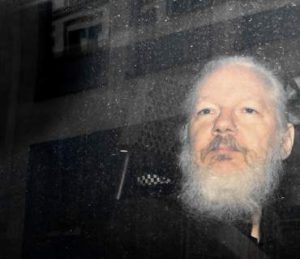

Can A Lawsuit Against The CIA Affect U.S. Extradition Attempt of Julian Assange?
In August 2022, a group of U.S. citizen attorneys and journalists sued the CIA and its former director Mike Pompeo. They alleged that the CIA, during Pompeo’s tenure, spied on them during meetings with Julian Assange at the Ecuadorian Embassy in London. The WikiLeaks founder sheltered there for 7 years in an effort to avoid extradition to the United States.. Assange is charged with 17 counts under the Espionage Act for revealing evidence of U.S. war crimes. If convicted, he faces 175 years in prison.
The lawsuit says that the CIA violated the privacy rights of those journalists and lawyers. Plaintiffs include journalists Charles Glass and John Goetz, and New York City attorneys Margaret Kunstler and Deborah Hrbek, who have represented Assange. The suit seeks compensatory and punitive damages for the plaintiffs for the violations of their rights. It also seeks the removal of any information held by the CIA which was collected from them during their visits to see Assange and prevention of the release of any this information to a third party.
The CIA, as listeners may know, is prohibited from collecting intelligence on U.S. citizens, although several lawmakers have alleged that the agency maintains a secret repository of Americans’ communications data. Richard Roth, the lead attorney in this case, had this to say: “The United States Constitution shields American citizens from U.S. government overreach even when the activities take place in a foreign embassy in a foreign country.”
Journalists and lawyers visiting Assange were required to surrender their electronic devices to Undercover Global before each visit. U.C. Global is a private security company which was providing security to the embassy. The lawsuit alleged that the company copied that information and handed it over to the CIA.
In early November, Deborah Hrbek and our own Marjorie Cohn discussed the lawsuit and the case against Assange, in a program sponsored by the First Unitarian Society of Milwaukee. For our show today, we’re delighted to bring you their remarks and answers to several audience questions. Deborah Hrbek starts off the event. In addition to being a member of the Assange defense team, her law practice focuses on entertainment and small business law. Marjorie is a member of the national advisory board of Assange Defense.
Hosted by Attorney Heidi Boghosian

—————————————–
CIA Sponsored Terror, Civil Liberties, Civil Rights, Human Rights, Supreme Court, War Resister
Podcast: Play in new window | Download
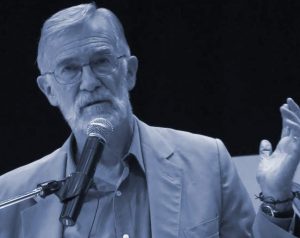
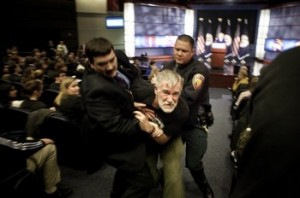
A Unified Movement of Peace
The world today is threatened with war, poverty, displacement and hunger like no other time since 1937 when World War II began with the Japanese invasion of China. Within four years the war had spread leading to the death of tens of millions of people. This included 50 million Russians, 400,000 Americans and finally hundreds of thousands of Japanese civilians in 1945 when the US initiated the nuclear age with the bombing of Hiroshima and Nagasaki demonstrating American power to the Russians. This initiated the Cold War which is now in a second stage. It must be stopped.
The American wars in Vietnam and Iraq were based on lies. We were told in 1965 by President Lyndon Johnson that the Vietnamese had attacked American ships in the Gulf of Tonkin. This was a lie. In 2003 we were lied to by President George W. Bush who told us that Saddam Hussein had weapons of mass destruction.
The proxy war in Ukraine against Russia is based on the ubiquitous lie that the Russians were unprovoked. It threatens to spin out of control. Why are we again in this situation and what can we do about it? What is desperately needed is a unified American peace movement.
Guest – Ray McGovern former CIA intelligence analyst, Ray briefed President George H. W. Bush every morning on intelligence matters, particularly with respect to Russia. He is a founder of VIPS, Veteran Intelligence Professionals for Sanity and a contributor to the blog Common Dreams.
—-

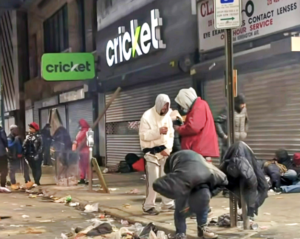
Doctors Lose Licenses For Properly Prescribing Opioids
The CDC wrongly thought pain management doctors were over prescribing opioids. The CDC issued guidelines in 2016 put limits on the amount of opioids doctors could prescribe thinking that high doses of Oxycontin lead to addiction and death. These guidelines were disastrous for chronic pain patients. Many were driven to buy illegal drugs on the street which were laced with poisonous fentanyl. In 2021 this led to 100,000 deaths in the United States.
Several insurance companies encouraged the CDC to impose limits on doctors prescribing Oxycontin and to taper their patients. Opioids are very expensive. The insurance companies were fortified in their erroneous belief by the efforts of a certain organization of doctors who are not pain management specialists.
When the CDC guidelines were exceeded, the Department of Justice threatened to indict doctors and got them to stop practicing medicine. The doctors gave up their medical licenses and licenses to prescribe narcotics. Some were prosecuted. Some went to prison. Some endured large fines. Seventeen hundred out of 6000 pain management doctors were removed from the practice of medicine.
Doctors who refused to taper were victimized. These doctors correctly believed that their patients were dependent on high dosages of opioids but were not drug addicts. These doctors understood that denying their patients high dosages of opioids would lead to suicides and deaths by overdose from street drugs.
The United States Supreme Court recently ruled in the case of The United States v Ruan that doctors have the right to treat their patients as they see fit without government interference, they ruled 9 to 0 that doctors who prescribed opioids in good faith did not have the requisite mindset, mens rea, to be found guilty of over prescribing.
Guest – Kelly Dineen Gillespie is a professor of law and the Director of the health law program at Creighton University School of Law. She teaches health law and bioethics. Dr. Gillespie holds a PhD in health care ethics as well as a law degree. Before attending law school she worked as a nurse in neurosurgery and transplant ICUs. She co-wrote two friend of the court briefs in the significant Ruan v United States case on behalf of professors of health law and policy before the US Supreme Court regarding criminal distribution under the Controlled Substance Act as applied to doctors‘ prescriptions. In June 2022, the Supreme Court adopted much of the reasoning advanced in these briefs in a unanimous decision supporting doctors.

————————————
Civil Liberties, Civil Rights, Criminalizing Dissent, Human Rights, Violations of U.S. and International Law, War Resister, Whistleblowers
Podcast: Play in new window | Download
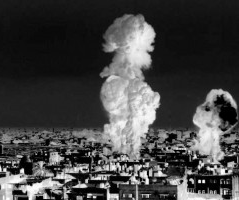
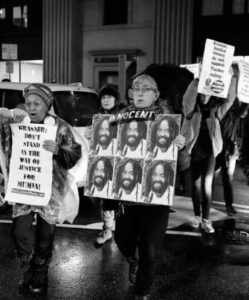
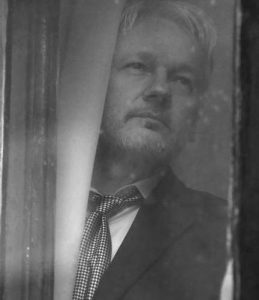
Mass Rally Mumia, Assange and Palestine in Berkeley, California September 17, 2022
Veteran socialist and organizer Jeff Mackler initiated a call for a mass rally on September 17, 2022 in Berkeley, California in support of Mumia Abu-Jamal, Julian Assange, and Palestinians. In 1982 radio journalist and Black Panther Mumia Abu -Jamal was wrongfully convicted and sentenced to death for murdering police officer Daniel Faulkner on a Philadelphia Street. He served 28 1/2 years on death row before his sentence was reduced to life in prison. Still in prison, he has served 40 years. An International movement has developed demanding “Free Mumia.”
Award winning Australian journalist and publisher Julian Assange sits in Belmarsh. a maximum security prison in London. In declining mental and physical health,he has been incarcerated for over 1000 days while he awaits extradition to the Northern District federal court in Virginia where he will be tried and certainly convicted of violating the espionage act of 1917. His crime: embarrassing United States by publishing true information about US wars in Iraq and Afghanistan and spying on the American public.
The Gaza Strip imprisons 1 million Palestinians. It is largest open air prison in the world. A month ago the Israeli military killed 49 people, 17 of them children, in military attacks. The weapons were made and supplied by America. North of the Gaza Strip in June in the Israeli militarily occupied territory of the West Bank an Israeli sniper assassinated the beloved veteran Al Jazeera journalist Shireen Abu Akleh who was covering an Israeli army incursion. She had been reporting on the situation of Palestinians In the West Bank for many years.
American ideology has it that our country is a force for good in the world. That it is a democratic society, that it promotes freedom and democracy abroad, and that at home it is a place where hard work leads to success. But the truth is quite different. These myths are increasingly being exposed for what they are.
Recognizing that free journalism is at stake a diverse group of organizations are sponsoring the September 17th mass rally In Berkeley. Mumia will speak via phone. Vincent de Stefano of the Assange Defense Committee will speak. So will Daniel Ellsberg, famous for his release of the Pentagon papers, Susan Schnall, President of Vets for Peace, Mama Pam of Friends of Mumia’s International Family, the great journalist Chris Hedges, Pulitzer Prize winning author Alice walker, and Jeff Mackler among others.
The slogan of the rally is Free Mumia! Free Julian! Free Palestine!
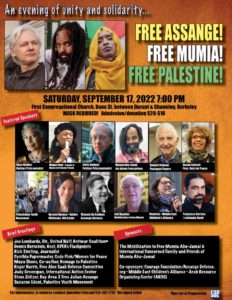
Guest – Jeff Mackler is a founder and leader of the United National Antiwar Coalition (UNAC), hey founder of the Northern California Climate Mobilization, and the national secretary of Socialist Action and it’s two time candidate for the US presidency.
—-
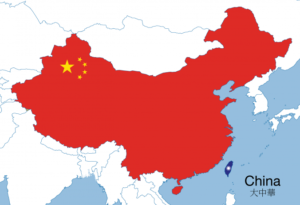
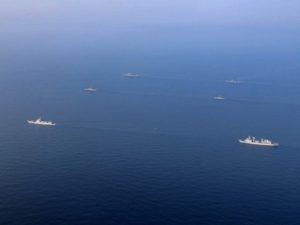
Analysis: The Taiwan-US Relationship And China
Trips to Taiwan, by Congressional leaders like Nancy Pelosi, followed up by trips to Taiwan by other members of Congress, has served to push the United States and China closer to a catastrophic conflict. Richard Becker, our guest for this topic today has written, “Pelosi’s decision raises the specter of all-out war between the two world powers. and the consequences of her actions remain to be seen.”
The Biden Administration, which obviously approved of Pelosi’s Taiwan visit, added fuel to the fire by deploying an aircraft carrier off the coast of Taiwan along with accompanying warships.
Pelosi’s argument that the U.S.-Taiwan relationship was based on a shared belief in “self-determination and self-government, democracy and freedom” is ridiculous. The U.S. and other colonial efforts to dismember Taiwan from the rest of China goes back to at least the 19th century. And at the end of World War Two, the U.S. government supported the Nationalist Party of dictator Chiang Kai-Shek in the civil war between his party and the ruling communist party of China; a war that Chiang lost. After Chiang lost that civil war he retreated to the Chinese island of Taiwan, where he ruled as a vicious dictator. Of course, he continued to receive with massive military and diplomatic support from the United States. And even after it was forced to abandon its absurd policy that Taiwan represented the legitimate government of China, the U.S. has maintained its de facto alliance with the regime in Taiwan. And China, which still claims Taiwan as a part of China, has not ruled out eventually bringing Taiwan back under mainland China’s governance, including with the use of force if need be.
Guest – Richard Becker a leader in the Party for Socialism and Liberation. He’s also the Western Regional Coordinator of the ANSWER Coalition, the coalition to end war and end racism; and Mr. Becker is the author of a number of books, including, Storming the Gates: How the Russian Revolution Changed the World, the book, Palestine: Israel and the U.S. Empire; and the book, The Myth of Democracy and the Rule of the Banks.

————————————-
Civil Liberties, Civil Rights, Human Rights, Political Prisoner, Torture, Truth to Power, Violations of U.S. and International Law, War Resister, Whistleblowers
Podcast: Play in new window | Download
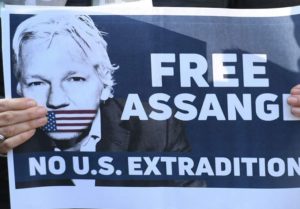
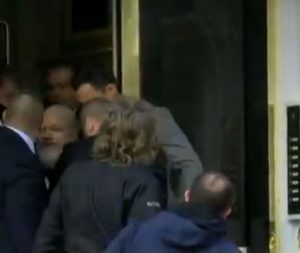
Extradition Of Journalist Julian Assange
On June 17, Priti Patel, the UK Home Secretary, ordered the extradition of journalist Julian Assange to the United States to stand trial on Espionage Act charges that could lead to 175 years in prison. The Obama administration, which prosecuted more whistleblowers than all prior presidents combined, decided not to file criminal charges against Assange. But Donald Trump’s regime indicted Assange for revealing evidence of U.S. war crimes in Iraq, Afghanistan and Guantanamo. And Joe Biden’s government is continuing to pursue the extradition of Assange to the United States.
Assange has been confined in the UK for more than a decade. If he is extradited to the United States, he will be tried in the Eastern District of Virginia, one of the most conservative districts in the country. The judge to whom his case has been assigned jailed Chelsea Manning for refusing to appear before a grand jury investigating Assange.
Assange will appeal Patel’s decision. But if he is ultimately extradited, tried and convicted, it will pose a major threat to investigative journalism. People around the world are supporting Assange but the Biden administration is continuing Trump’s campaign to extradite Assange and try him in the United States.
Guest – Kevin Gosztola, an American journalist who writes about whistleblowers, WikiLeaks, national security and civil liberties. Kevin is managing editor of Shadowproof and he curates The Dissenter. He is producer and host of the weekly podcast Unauthorized Disclosure and co-author of Truth and Consequences: The US vs. Bradley Manning. Kevin has covered the Assange case extensively.
—-
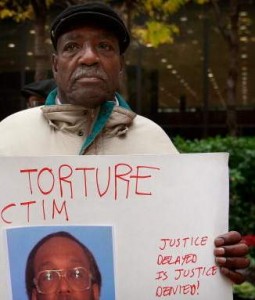
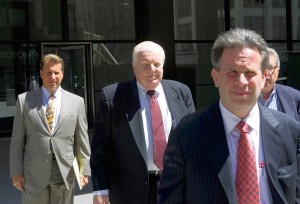
Chicago Torture Cases Cost Taxpayers 210 Million
Sixty years ago, the great social satirist and comedian Lenny Bruce quipped that “Chicago is so corrupt, it is thrilling.“ Today the corruption may not be so transparent but the amount of money spent to protect and defend cops who kill and torture people is staggering.
A few years ago, the city of Chicago sold its parking meters to a private corporation even as it was closing public schools and mental health clinics ostensibly for lack of funding. But as of now and for the last 15 years, Chicago, Cook County and the State of Illinois has spent at least $212 million of taxpayer money for expenses in torture cases involving the infamous Chicago torturing cop, Jon Burge, and his crew. They operated in Chicago’s brutal Area 2 where they extracted false confessions from more than 125 African-American men through the use of torture.
$37.5 million of the $212 million has gone to what has been called “pinstripe patronage lawyers,“ who defended the police torturers. $19-1/2 million has been spent on special prosecutors in Cook County where Chicago is located. At least $38.7 million has been applied to pension payments for the offending cops, $7.9 million has been spent on the state Torture Commission and Court of Claims payouts, and finally, $108.2 million has gone for settlements, verdicts, and reparations. And the cases, and the payments, continue to this day and will continue into the future.
Guest – Chicago civil rights attorney Flint Taylor who led the litigation against Jon Burge and his torture crew. Taylor is a founding partner of the People’s Law Office in Chicago and has represented dozens of clients subjected to torture and other police misconduct. He is the author of The Torture Machine: Racism and Police Violence in Chicago. His most recent case involves the police murder of Joseph Lopez in Greensboro, North Carolina.

————————————-
Censorship, Civil Liberties, Human Rights, Prison Industry, U.S. Militarism, War Resister
Podcast: Play in new window | Download
- Michael Smith Commentary – Recall Of District Attorney Chesa Boudin
—-
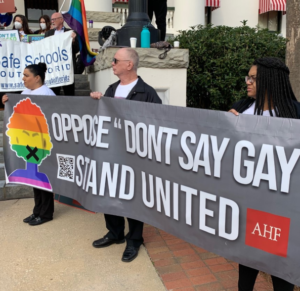
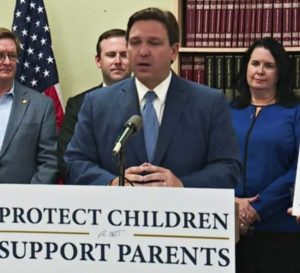
Opposition Grows Against Florida’s Don’t Say Gay Law
In April, Florida Gov. Ron DeSantis signed into law the Parental Rights in Education bill, known as the “Don’t Say Gay” law.
The bill bans instruction or classroom discussion about LGBTQ issues in kindergarten through third grade. Older students may discuss gay and transgender issues if they are “age appropriate or developmentally appropriate.” Florida’s legislators believe that classroom education about sexual orientation and gender shouldn’t start at an early age, and that parents can have the final say about what their children learn and when.
Sex education has already been banned in Florida and many other states until the fifth grade. Critics contend the new law focuses on a problem that doesn’t exist for the state’s youngest students. By limiting discussions about LGBTQ issues, it could stifle conversations for kids who need to process their own gender or sexual-identity questions, they say.
Many school librarians have accused their schools of removing race- and LGBTQ-related books from their shelves to avoid a fight. The Washington Post reported that schools with small budgets cannot afford to contest court challenges that the law will surely draw. Some schools are reportedly peeling off rainbow safe-space stickers from windows. As with other restrictive laws, the chilling effect is already being seen in schools across the nation.
Joining us today is K&L Gates attorney Michael Komo – a triple alumnus of George Washington University. Michael is well known for his work on behalf of the LGBTQ community and has been recognized at the local, state, and federal level, with accolades including Pittsburgh Magazine’s 2021 40 under 40 honorees and City and State PA’s 2022 Pride Power 100 honorees. He co-founded the LGBTQIA+ Anti-Human Trafficking Initiative with the FBI, started the Pride Night Series for Pittsburgh’s professional sports teams, and serves as the chair of the LGBT Rights Committee of the Allegheny County Bar Association.
Guest – attorney Michael Komo is well known for his work on behalf of the LGBTQ community, with accolades including Pittsburgh Magazine’s 2021 40 under 40 honorees. He co-founded the LGBTQIA+ Anti-Human Trafficking Initiative with the FBI, started the Pride Night Series for Pittsburgh’s professional sports teams, and serves as the chair of the LGBT Rights Committee of the Allegheny County Bar Association.
—-
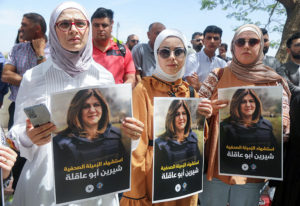
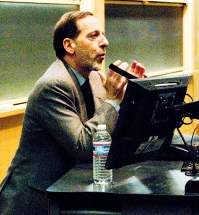
Investigating The Assassination Of Palestinian American Journalist Shireen Abu Aqleh
The Zionist colonial settler state of Israel is not the moral legatee of the victims of the Holocaust much less the moral legatee of the ancient prophets of the Jewish people.
Never has this been more evident than last month with the exposure of the Israeli army’s assassination of the beloved Palestinian American journalist Shireen Abu Aqleh. Assassination is a political murder.
Shireen had covered the Israeli military’s occupation of the West Bank for Al Jazeera for 25 years. The day she was killed she was reporting on the Israeli military invasion of Jenin, an Arab town on the West Bank occupied by the Israeli army for 55 years. She was wearing a helmet and a protective vest marked “PRESS.”
It is the practice of the Israeli army to shoot journalists and otherwise suppress the truth of their war crimes including the illegal theft of Palestinian lands. Israel’s brutal occupation has been going on since it illegally seized the West Bank as a prize of the 1967 war between Israel and three of its neighbors. Since then the Israeli military has ruled the native Arabs. Shireen is the 86th journalist to be killed while covering Israel’s illegal occupation since 1967.
The murder of Shireen was not adequately exposed by the U.S. press. The United States supports Israel politically, ideologically, economically, and morally. The U.S. gives the state of Israel more than $3.8 billion a year in weapons. Shireen was killed by a high-velocity armor-piercing 5.56 mm bullet fired from a Ruger Mini-14 semi automatic rifle – a weapon made in the U.S.
Israel has refused to conduct an investigation of Shireen’s assassination, because it “would provoke opposition and controversy within the IDF [Israeli Defense Force] and in Israeli society in general,” according to the Israeli government. Although complaints have been filed in the International Criminal Court against Israel, the court does not appear to have the political will to thoroughly investigate those charges.
There is an apocryphal story of three rabbis dispatched from a Zionist congress in Vienna many years ago to report back on the situation in Palestine. They reported back that the bride is beautiful but she’s married to another man.
The claim of the Zionist is that Israel was built on a land without a people for a people without a land. This is Israeli propaganda. This propaganda is less and less swallowed by the new generations in the United States and Europe as they witness Israel taking over more and more of historic Palestine and attempting to prevent the truth of what they are doing from coming out.
Guest – Columbia University Professor Rashid Khalidi is a Palestinian American historian of the Middle East, the Edward Said professor of Modern Arab Studies at Columbia University, and Director of the Middle East Institute of Columbia School of International and Public Affairs. He was educated at Yale and Oxford universities and is the author of many books on the Middle East. He is also the author of Under Siege: PLO Decision Making During the 1982 War, Brokers of Deceit: How the US Has Undermined Peace in the Middle East and recently The Hundred Years’ War on Palestine: A History of Settler Colonialism and Resistance, 1917–2017.

—————————————–
























